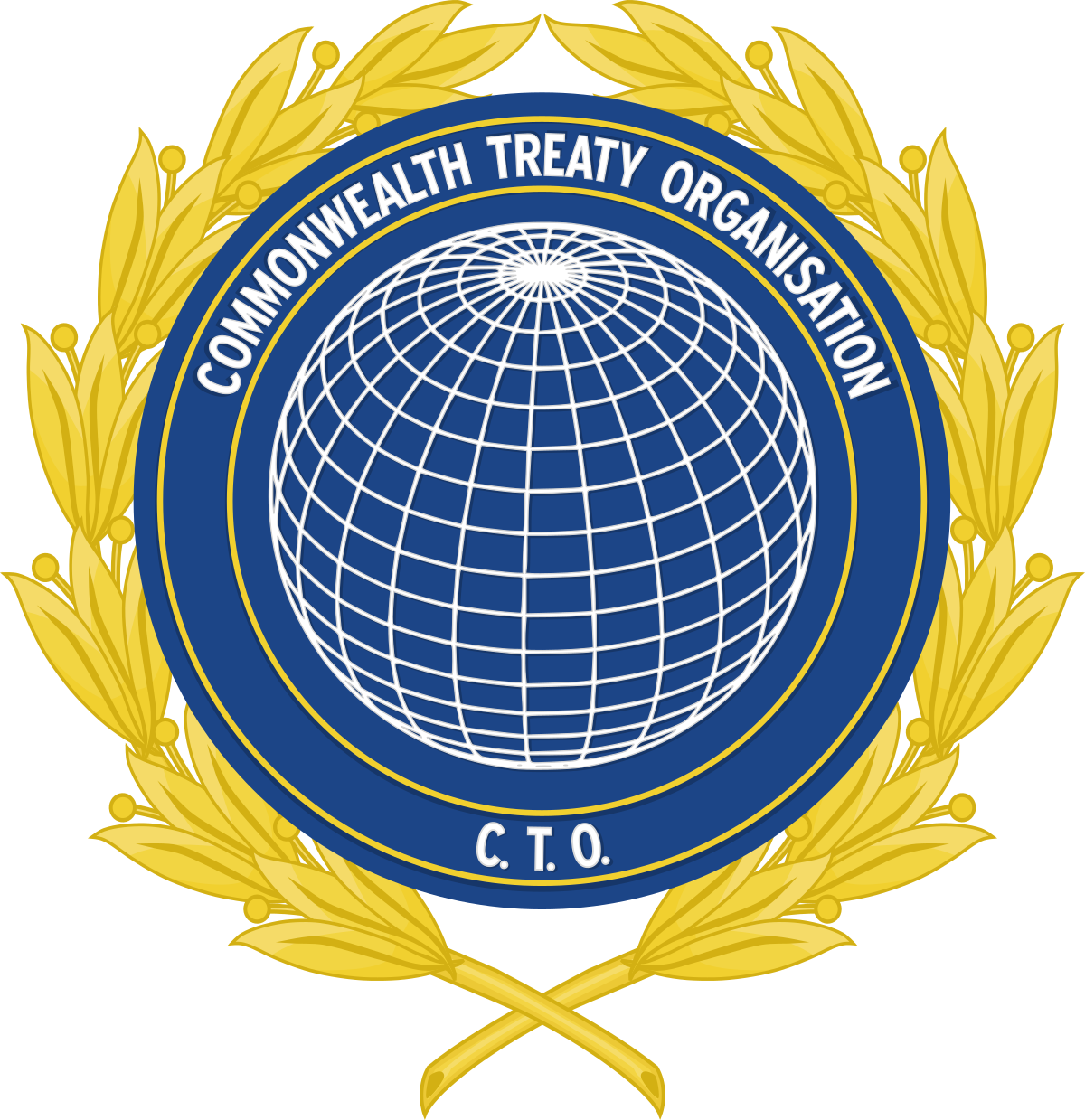
The Commonwealth Treaty Organisation (CTO) was a multinational defensive alliance founded by Kaiser of the Emu Empire Mason Troy Adams on the 1st of March 2025, it was created to ensure diplomatic cooperation, military cooperation and security, and stability. It functions similarly to that of NATO or the EU
On the 21st of June 2025, the Commonwealth Treaty Organisation was officially dissolved by it's Secretary-General Mason Troy Adams. The reason for it's dissolution was because of the North Sea Federation officially leaving it on the 1st of May 2025, which only left the Emu Empire and diplomatic members who couldn't provide military support. The reason for the North Sea Federation leaving the alliance was because Munchyolly saw the alliance as pointless as only the Emu Empire could provide military support. The Commonwealth Treaty Organisation would then go on to be replaced by the Europa Security Pact.
The leadership structure of the Commonwealth Treaty Organisation is designed in a way that balances authority and fair representation among it's member nations. At the head of the Commonwealth Treaty Organisation is the Secretary-General, who serves as the primary leader and a mediator between it's member nations. Below the Secretary-General is a council of representatives from each member nation, they are appointed by the leader of their nation. This council of representative are responsible for representing the interests of their country, helping with CTO policies and decisions, and informing the Secretary-General and fellow member nations of hostile nations and people of interest.
1. Follow the server rules.
2. Avoid arguments, if unavoidable then keep them civilised.
3. Respect the sovereignty and independence of other member nations.
4. Each nation must appoint 1-2 representatives for their nation, if they're unable to appoint a representative then the leader may represent their nation alone.
1. An attack on one CTO member is considered an attack on all, therefore they are required to help in the defence against the attacker nation, if a nation is unable to provide military support then they must let the Secretary-General know in advance so they can be categorised under diplomatic members.
2. If one CTO member goes onto an offensive war, fellow members of the CTO are not required to support them but may join if they want to.
3. Do not intentionally attack fellow CTO nations, failing to do so may result in serious punishment.
1. All CTO members must respect each other’s sovereignty and independence.
2. CTO members must resolve disputes through the Secretary-General, if this fails then other CTO members may be required to help resolve the dispute.
3. Spying or sabotage against fellow CTO members is strictly forbidden.
4. Do not leak messages from any CTO embassy or conferences.
5. When a hostile nation is declared, there will be instructions on what your course of action should be for that nation.
1. If a CTO member wishes to start an emergency meeting they must get approval from the Secretary-General, if they do not get a response then they may start one without the permission of the Secretary-General.
2. If a CTO members wants to declare someone a person of interest or declare a country as hostile, they must contact the Secretary-General in direct messages, then they must provide a reason and evidence, if it is declaring a country as a hostile nation then 3 other CTO members must be in support.
3. As the Secretary-General holds supreme power they may veto any decisions they are against, however if a majority of members are in support of the decision then they may refrain from using it.
4. For many decisions a majority support will be required, same goes for vetoing decisions.